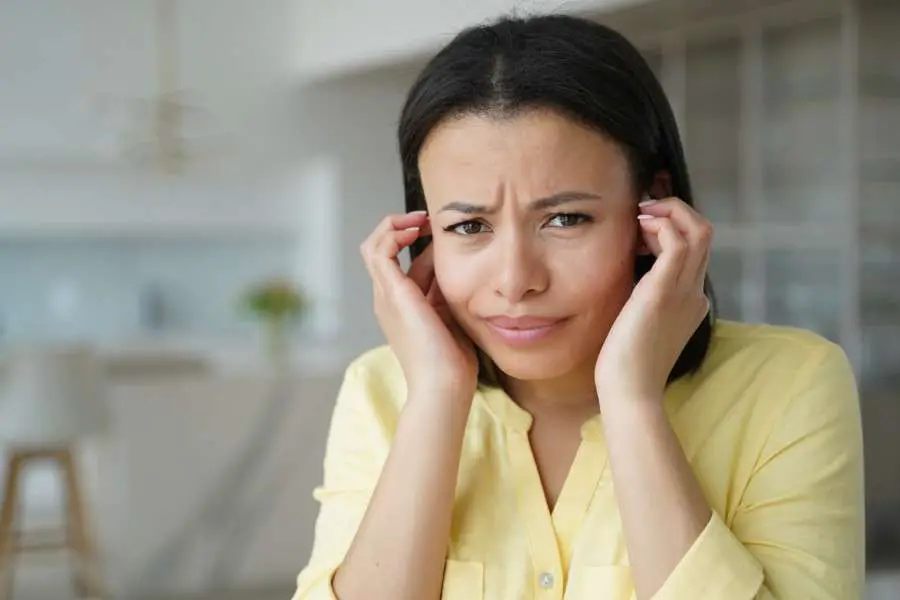Introduction
When we contemplate the potential effects of Meningitis, our thoughts often rush to the severe and life-threatening implications this disease can bring. Among the lesser-known complications, yet equally as debilitating, lies the potential for profound hearing loss, a consequence linked directly to damage of the cochlear nerve. Through understanding this complex journey, we can better support individuals battling Meningitis-related hearing loss, arm ourselves with knowledge and compassionate care strategies, and anticipate the evolving horizon of medical interventions.
Lipo-Flavonoid Plus, Tinnitus Relief for Ringing Ears
Considered the most effective over-the-counter solution by ENTs, this product comes highly recommended by doctors for reducing ear ringing. Its effectiveness has been acknowledged and trusted by medical professionals in the field.
Please note that exposure to heat or sunlight may cause melting or damage to the product. To ensure the product’s integrity, customers are advised to be present during the delivery process.
Formulated with a natural lemon bioflavonoid complex, this product contains a rich blend of essential vitamins and nutrients such as Vitamins C, B1, B2, B6, B12, Calcium, Choline Bitartrate, Inositol, Niacin, and Pantothenic Acid. These ingredients provide vital nutritional support for the inner ear, making it beneficial for individuals with tinnitus and Meniere’s syndrome.
Understanding the Cochlear Nerve and its Function
The cochlear nerve, also known as the auditory nerve, serves as the information highway between our ears and our brain. It carries the electrical impulses converted from sound waves by the cochlea, our inner ear’s spiral-shaped organ. This nerve’s critical role is underlined in the hearing process, where any damage can lead to severe hearing loss or deafness.
Meningitis, an infection of the meninges, the protective membranes covering the brain and spinal cord, can adversely affect the cochlear nerve. In bacterial Meningitis, the bacteria can infiltrate the cochlea, causing inflammation and subsequent damage to the auditory nerve. The resultant hearing loss can vary from mild to profound and can be temporary or permanent, depending on the severity of the nerve damage.
QUIZ - SYMPTOMS OF HEARING LOSS IN CHILDREN
The Impact of Meningitis on the Cochlear Nerve
Meningitis and hearing loss form an unfortunate pairing due to the disease’s detrimental impact on the cochlear nerve. As the infection advances, it causes inflammation in the cochlea, leading to the potential destruction of the hair cells responsible for converting sound waves into nerve impulses.
The process of cochlear ossification, where the cochlea becomes filled with bone, can further compound the complications. This process can commence as early as two weeks after the onset of Meningitis. A study by the American Journal of Neuroradiology found that ossification was present in 20% of patients with Meningitis-related hearing loss. This ossification can limit the effectiveness of cochlear implants, making early intervention crucial for successful auditory rehabilitation.
https://www.hearing-loss.news/congenital-hearing-loss-a-comprehensive/
Symptoms and Diagnosis of Cochlear Nerve Damage
Cochlear nerve damage can manifest in various ways, depending on its severity. Symptoms might include sudden or gradual hearing loss, tinnitus (ringing in the ears), dizziness, or balance issues. Children might show signs of auditory neuropathy, a hearing disorder where sound enters the inner ear normally, but the transmission of signals from the inner ear to the brain is impaired.
Diagnosis of cochlear nerve damage involves a range of audiological assessments. Pure-tone audiometry, where an individual responds to a range of sounds across different frequencies, helps determine the extent of hearing loss. An auditory brainstem response (ABR) test can identify neural deficits, while high-resolution magnetic resonance imaging (MRI) can detect changes in the cochlear nerve itself.
Management and Treatment Options
Effective management of cochlear nerve damage requires a multi-faceted approach, commencing with timely diagnosis and intervention. Initial treatment generally involves high-dose steroids to reduce inflammation and antibiotics to combat the underlying infection.
For permanent hearing loss, hearing aids might provide significant benefit for some, amplifying sounds to assist in overcoming the deficits caused by nerve damage. For others, especially those with profound hearing loss or cochlear ossification, cochlear implants may be more suitable. Cochlear implants bypass the damaged parts of the inner ear and directly stimulate the auditory nerve. A study in the International Journal of Pediatric Otorhinolaryngology highlighted the effectiveness of cochlear implants in children with Meningitis-induced deafness, with significant improvements in speech perception and production.
In addition, auditory-verbal therapy (AVT), an intervention focusing on enhancing listening skills and promoting spoken language development, can significantly assist in managing the impact of hearing loss. A combination of AVT and cochlear implants has shown considerable success in improving communication abilities, particularly in children.
What to Look for in Inexpensive Hearing Aids
Long-Term Prognosis and Future Research Directions
The long-term prognosis of Meningitis-related hearing loss varies, dependent on the extent of nerve damage, the promptness of intervention, and the individual’s response to treatment. Early intervention is paramount, and with appropriate management, many individuals can lead fulfilling lives, despite their hearing loss.
Future research continues to focus on improving early diagnosis, enhancing hearing aid technologies, and further refining cochlear implant procedures. One promising area of exploration is the field of regenerative medicine, which could potentially restore the damaged cochlear nerve. A study published in Frontiers in Molecular Neuroscience outlined the potential for using neural stem cells to repair damaged auditory nerves, a promising development, albeit currently in its infancy.
Audiologists as Advocates: Empowering Patients and Families
Audiologists serve as key advocates in the journey towards auditory rehabilitation, helping patients and their families understand the nature of hearing loss and navigate treatment options. From the initial diagnosis and treatment decision-making to ongoing management and support, audiologists play a pivotal role in empowering patients to live beyond their hearing loss.
Supporting the patient’s psychosocial needs is equally crucial. Dealing with hearing loss can be an emotionally challenging experience, and audiologists, alongside other healthcare professionals, can provide much-needed support. They guide the individual and their families towards local support groups, rehabilitation services, and resources that can aid in the coping process.
Tinnitus: why it’s still such a mystery to science
Conclusion
Navigating the complex terrain of Meningitis and hearing loss can be a daunting journey for many individuals and their loved ones. However, with a comprehensive understanding of the cochlear nerve’s role and the potential impact of Meningitis, we can equip ourselves with the necessary tools to advocate for better healthcare outcomes.
The multidisciplinary approach to managing cochlear nerve damage – from initial diagnosis, intervention, and long-term management – serves as a testament to the power of coordinated care. Future research promises more refined diagnostic tools, better hearing aids, innovative cochlear implant techniques, and potentially, the regeneration of damaged nerves.
As we move forward, let’s take heart in knowing that we are not alone in this journey. Audiologists stand alongside us as dedicated advocates, armed with a wealth of knowledge and a commitment to empowering patients and families alike.
In this evolving landscape, one thing remains steadfast – our resilience, our capacity to adapt, and our unwavering spirit. As we continue to champion for the individuals living with Meningitis-related hearing loss, we cultivate a world where every voice is heard, every individual seen, and every story matters.






